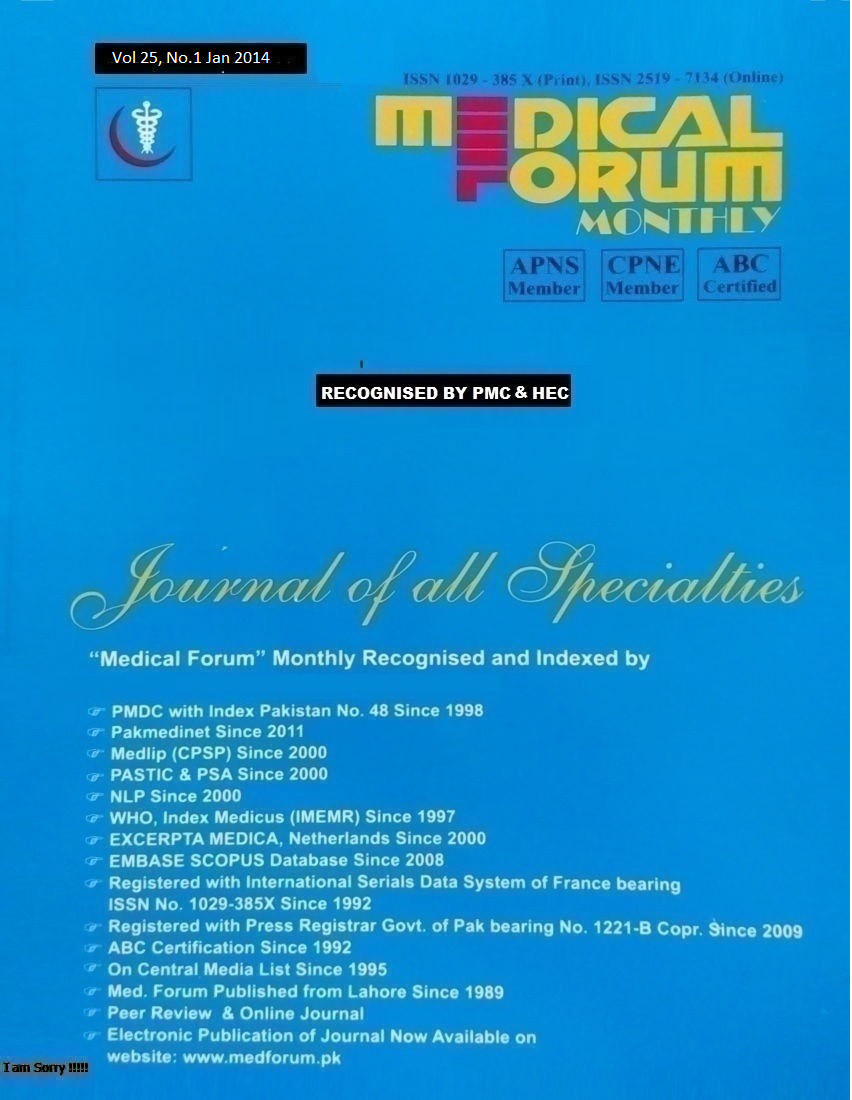
4. Causes and Management Out Come of Peritonitis
1. Muhammad Ali Sohail 2. Rafique Ahmed Sahito 3. Feroze Ahmed Mahar
1. Assoc. Prof. of Urology 2. Assoc. Prof. of Surgery 3. PGR of Urology,
Peoples University of Medical and Health Science for Women, Nawabshah, SAB
ABSTRACT
Objective: This retrospective study was conducted to study the different causes of peritonitis and to determine the surgical out come.
Study Design: Retrospective study
Place and Duration of Study: This study was carried out at the Department of Surgery Peoples Medical College Hospital Nawabshah from 1st January 2001 to 31st December 2001.
Materials and Methods: In this study of 51 patients of peritonitis admitted, out of them, 16 cases of typhoid ileal perforation, 8 cases of perforated duodenal Ulcer, 7 cases of tuberculosis of those 2 cases were of jujenal perforation and 5 cases of ileal perforation, 4 cases of perforated appendix, 4 cases of ruptured liver abscess, 2 cases of perforated neoplasms of those 1case each with multiple ileal/ jujenal perforation due to lymphoma ,malignant caecal perforation, gastric perforation, jujenal perforation obstructive/strangulated, infective caecal perforation each, 2 cases of post operative peritonitis, 3 cases trauma, 2 cases of blunt abdominal trauma each developed peritonitis due to ileal and jejunal perforation, 1 case of gunshot injury causing peritonitis due to colon perforation, 2 cases of ruptured ovarian cyst associated with appendicitis.
Results: In our study, male to female ratio is 4:1. Maximum frequency was observed in 20-30 years age, whereas most of the patients ranged between 13 to 40 years.
Conclusion: Surgical outcome of the peritonitis resulted poor in those cases who came late with hugely contaminated peritoneal cavity when operated. They developed post operative complications i.e. wound infection, septicemia, fecal fistula & longer hospital stays. 22 patient’s outcome was poor and out of them 8 patients expired. The mean hospital stay was 23.0+17.7 days and the range was 67(3-110 days).
Key Words: Peritonitis, Causes & Management
